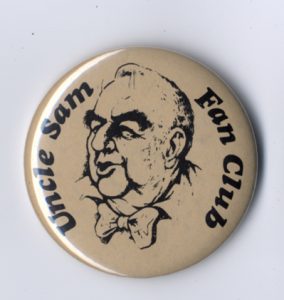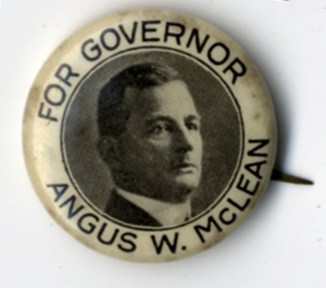“The funeral train plunged through the darkness [on April 14, 1945], changing engines and crews again at Salisbury, North Carolina, where 8,000 people (including 145 honor guards from Fort Bragg), stood in silence — and presented still another floral wreath. Sometime after midnight, the train rumbled through Greensboro. The countryside between the big cities was land that one journalist [Jim Bishop] later termed ‘Noplace in the Carolinas.’ With a schedule to keep, the funeral train simply could not stop in such locales….
“The exception was a place — never identified — where the railroad tracks slipped into a narrow cut of earth with farm fields abutting the crevasse on either side….. The locomotives chuffed to a halt beneath a tall wooden water tank….
“As the fireman wrestled the filling spout over the hatch of the first tender, an elderly black sharecropper — awakened by the hiss and clang below — wandered over to investigate. He peered down and saw the train paused in the ghost light, its windows all dark except for those of the last car, where he saw the flag and knew what it meant.
“Shocked and humbled, the man began to sing ‘Hand Me Down My Walkin’ Cane.’ His sonorous baritone boomed across the moonlit fields, drawing other farm hands out of their shanties. One by one they added their voices to the chorus. One of the engineers looked up, certain he could hear singing from somewhere above and away….”
— From “FDR’s Funeral Train” by Robert Klara (2010)
Klara’s book is authoritative and engaging, but I was disappointed he didn’t make use of reporter LeGette Blythe’s deadline account of the funeral train passing through Charlotte. I’ll post an excerpt tomorrow.



